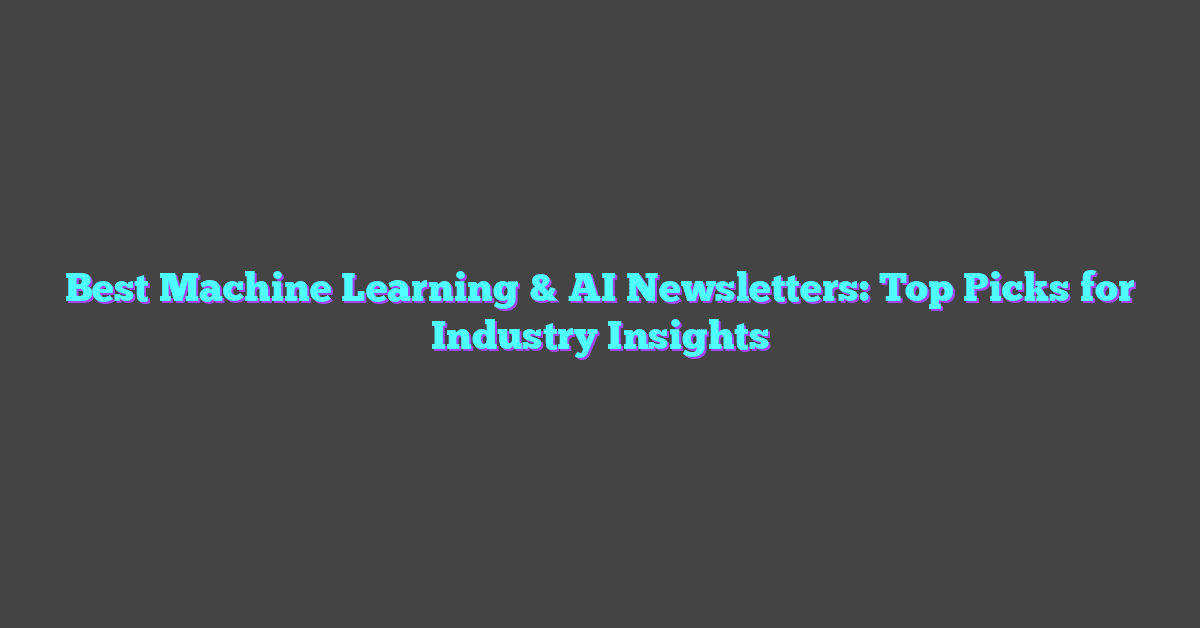The automotive industry, present for over a century, has significantly impacted our lives, enabling efficient transportation as we quickly and safely travel between destinations. Recently, advancements in technology have introduced artificial intelligence (AI) into the mix, leading to transformative innovations and unlocking a plethora of possibilities within this sector.
With AI, vehicles are experiencing enhancements that were once deemed impossible. From predicting maintenance needs before they become critical to enhancing overall road safety, AI has already begun to revolutionize the automotive landscape.
Key Takeaways
- AI innovations play a crucial role in transforming the automotive industry.
- Predictive maintenance and enhanced road safety are key improvements driven by AI.
- The incorporation of AI in vehicles sets the stage for future breakthroughs in transportation.
AI and Machine Learning Influence in the Automotive Realm
It’s undeniable that AI, machine learning, and autonomous vehicles have arrived and embedded themselves in today’s automotive industry. These innovations are not only sculpting our vehicles’ future, but they’re also transforming the way we perceive them. Understandably, you might wonder how these technological advancements are currently affecting cars and their potential capabilities. So, let’s delve into how AI and autonomous driving technologies are revolutionizing the world of automobiles.
AI Impacts the Automotive Industry in Interesting Ways
The automotive sector benefits from AI technology in multiple ways. AI enhances your driving experience by providing personalized recommendations and improving interaction through conversational interfaces. Additionally, AI expands the capabilities of voice assistants like Alexa and Siri, making them more efficient in understanding your needs and offering relevant information.
One of the major advantages of AI in the automotive industry is its role in self-driving cars. With AI, vehicles can drive autonomously, allowing you to focus on other tasks while on the road.
It Can Forecast Maintenance Issues in Advance
With trust in your vehicle’s performance being crucial, AI plays a significant role in ensuring a smooth and safe driving experience. Utilizing AI for predictive maintenance allows potential issues to be identified and addressed before they lead to expensive repairs or jeopardize your safety on the road.

This advanced software examines data gathered from similar vehicles and situations (for example, high-speed driving) to make informed decisions about what may need attention in the future. In turn, this proactive approach helps in reducing overall maintenance costs for you and avoiding unexpected breakdowns.
Furthermore, AI’s involvement in quality control and testing of vehicles significantly lowers the chances of post-production defects, minimizing the number of potential recalls. So, as you rely on your vehicle to take you where you need to go, rest assured that AI is working to ensure your car remains dependable and trouble-free.
Machine Learning Helps Cars Drive Themselves
With advancements in technologies like neural networks and deep learning, machine learning has come a long way since the 1950s. Self-driving cars have emerged as one of the most promising applications of these technologies. By leveraging data science and computer vision techniques, machine learning enables cars to gather and analyze vast amounts of data on driving patterns and road conditions, such as weather.
Using this information, self-driving cars can make real-time predictions. For instance, an AI-powered vehicle could estimate the probability of another car turning left into its path in the next five seconds. If the likelihood is high, say 90%, the car’s onboard computer would autonomously take corrective action, such as braking or steering away from the potential hazard. Such capabilities are made possible by sophisticated convolutional neural networks and powerful AI chip technology, both essential components of modern self-driving automobiles.
Using AI to Enhance Customer Experience
AI offers numerous benefits for the automotive industry, especially when it comes to elevating the customer experience. Manufacturers employ AI in various ways to achieve this:
- Empowering sales representatives with the knowledge they need to better assist clients
- Utilizing data from previous purchases and customer interactions to enable more informed decision-making during future transactions
- Equipping customers with invaluable information about warranty coverage, safety recalls, and comparisons for other vehicles they might be contemplating
Incorporating AI tools such as speech recognition, voice assistants, and infotainment systems adds further value to customer interactions and provides a more personalized experience.
The Internet of Things (IoT) Simplifies Lives
IoT technology connects everyday devices to the internet, streamlining various aspects of life. With a network of sensors, cameras, and radars, you’ll experience added convenience and efficiency. For instance, imagine a smart fridge that orders milk when you’re running low. This eliminates extra trips to the store, allowing you to focus on other tasks.
Additionally, devices like window sensors can enhance your home’s security. In case of a break-in attempt, these sensors provide real-time notifications to the police, ensuring immediate assistance. Connected cars fitted with cameras and radar systems enable efficient navigation and promote safer driving conditions. Embracing IoT technology eases daily responsibilities, granting you peace of mind and freeing up time for more enjoyable pursuits.
IoT Can Make Future Autonomous Vehicles Safer and More Convenient to Use
IoT is playing a crucial role in enhancing the safety and convenience of autonomous vehicles. By enabling cars to connect and communicate with other vehicles, road authorities, and nearby vehicles, these cars can better anticipate the actions of others, reducing accidents.
IoT contributes convenience through sensor integration, allowing vehicles to detect obstructions and adjust accordingly. For instance, with automatic parallel parking, IoT can help prevent collisions with parked cars or property.
Environmental stewardship is another significant impact of IoT in autonomous vehicles. By analyzing vehicle usage and fuel consumption patterns, manufacturers can modify production plans to reduce CO2 emissions and protect the environment from global warming’s damaging effects.
The future of the automotive industry holds exciting possibilities with AI advancements:
Improved Quality of Life: Integrating autonomous driving technology will enable you to spend less time commuting and more time enjoying non-work activities. This integration also helps alleviate traffic congestion and improve air quality in urban areas by reducing emissions from idling vehicles navigating through slow, stop-and-start traffic.
Increased Road Safety: Though cars have grown smarter over time, there’s still room for improvement in safety features like automatic braking systems. These systems use sensors to detect potential collisions and apply brakes automatically. As autonomous technology evolves and becomes better understood, these safety features are expected to become more common in vehicles, especially those produced by prominent manufacturers.
By harnessing IoT’s potential, future autonomous vehicles will provide you with a safer and more convenient driving experience, contributing positively to both individual quality of life and environmental preservation.
AI is Presently Transforming Our World and Holds a Promising Future
As AI technology advances, its impact on the automotive industry continues to grow. Machine learning, especially deep reinforced learning and generative adversarial networks, enables self-driving cars to learn and improve without human intervention. The potential of less distraction and increased safety for vehicles lies ahead.
AI’s influences span various aspects:
- Accuracy: With transfer learning and federated learning, AI systems can enhance accuracy, giving vehicles the ability to better recognize road hazards and react appropriately.
- Challenges: Despite these benefits, AI faces hurdles such as biases, the black-box problem, and handling complex situations. Regulations like the GDPR add another layer of complexity while addressing privacy concerns.
- Skills gap: As the demand for AI professionals grows, closing the skills gap becomes crucial to ensure the industry can benefit from AI advancements.
In addition to transforming transportation, AI may boost productivity as machines take on tasks previously done by humans, like driving. Remember that cars represent more than just transportation; they play a significant role in your daily life.
AI’s presence and impact today foreshadow a promising future. By addressing challenges and harnessing its potential, you can expect AI to continue revolutionizing various industries, enhancing lives, and delivering innovative solutions for years to come.




